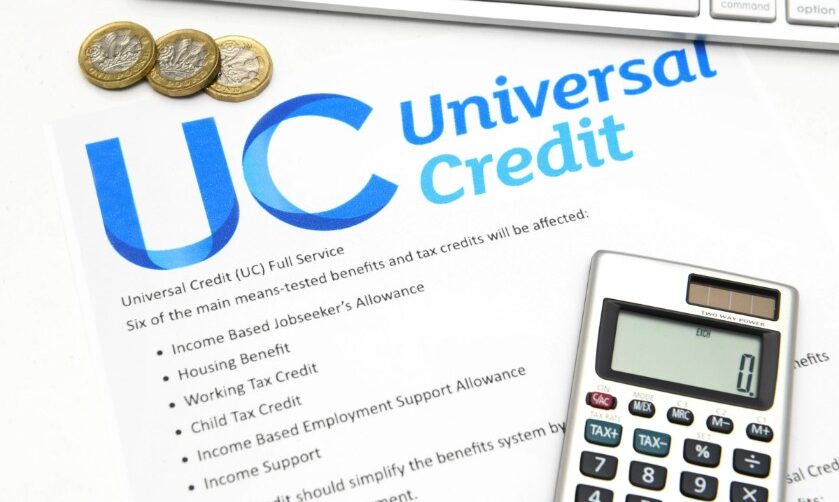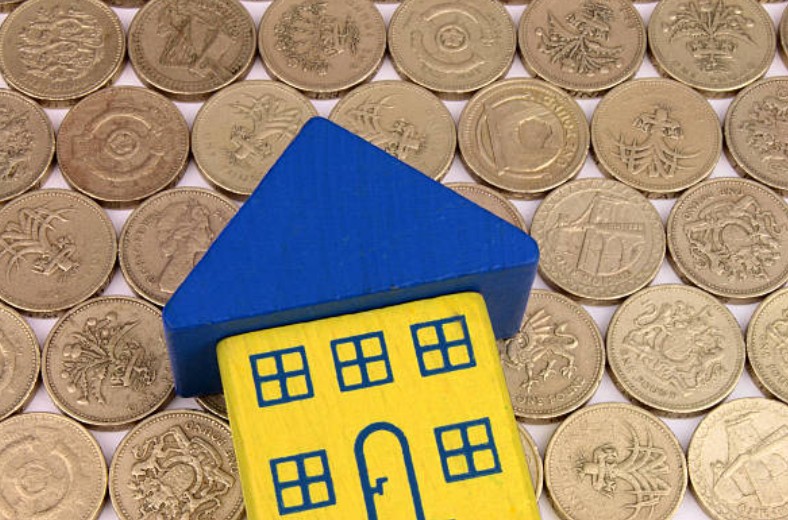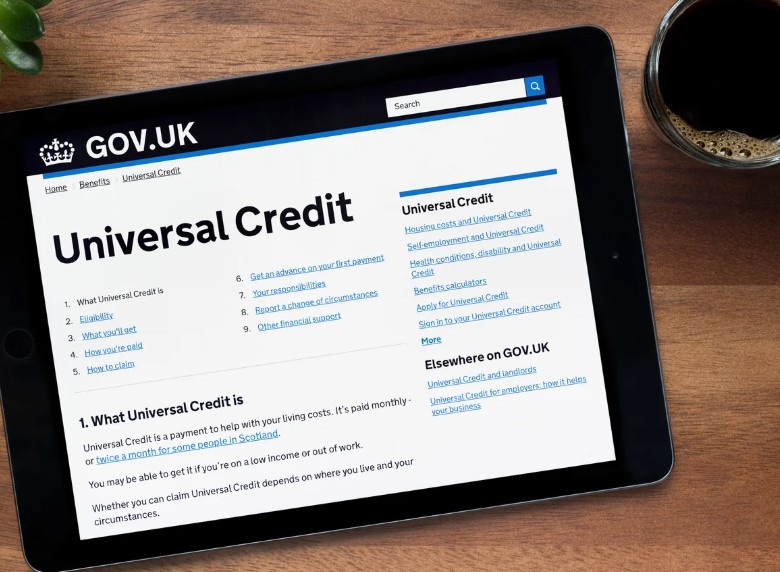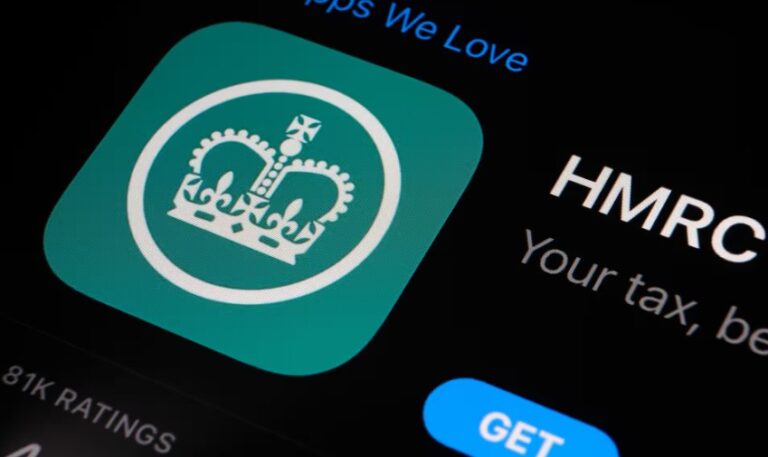How Much Universal Credit Will I Get If I Earn £1000 a Month? A Comprehensive Guide
Last Updated on
In today’s economic climate, understanding how benefits like Universal Credit work is crucial, especially when it comes to balancing your income and government support. For many people in the UK, Universal Credit is a vital safety net, designed to support those on low incomes or facing unemployment. But how does this system work if you’re earning a regular wage, specifically £1000 a month?
This guide will provide you with a step-by-step breakdown of how your earnings impact Universal Credit payments, what other factors come into play, and most importantly, how to maximise your entitlement.
Let’s answer your most pressing questions, starting from the basics and moving up to detailed calculations, ensuring you understand how Universal Credit works when you’re earning £1000 a month.
What Is Universal Credit?
What Is the Purpose of Universal Credit?

Universal Credit is a government-provided monthly allowance in the UK aimed at supporting individuals with low income or those who are unemployed. It aims to simplify the benefits system by merging six separate benefits into one. These include:
- Jobseeker’s Allowance (JSA)
- Income Support
- Housing Benefit
- Child Tax Credit
- Working Tax Credit
- Employment and Support Allowance (ESA)
Universal Credit is available to those who are working, unemployed, or unable to work due to illness or disability. It adapts to your income, meaning the more you earn, the less support you receive—but you may still qualify for some assistance if you earn £1000 a month.
How Universal Credit Is Calculated
Several elements are taken into account when calculating your Universal Credit payment.
- The amount of money you earn every month.
- Your household composition (whether you are single, living with a partner, or have children)
- Your age group (whether you’re under 25 or 25 and older)
- Housing costs (whether you rent or own a home)
- Any savings or capital you have
It’s important to note that Universal Credit is based on your financial situation, so higher earnings or savings can result in a reduction of your payment amount. It’s designed to help people gradually transition from benefits to a full-time wage without a sudden drop in income.
How Much Universal Credit Will I Get If I Earn £1000 a Month?
Will My £1000 Income Affect My Universal Credit?
If you’re earning £1000 per month, you might still qualify for Universal Credit—but the amount you receive will depend on various factors. Universal Credit payments are gradually reduced as your income increases, so even with a £1000 monthly salary, it’s likely you will receive a smaller payment. The reduction works through a “tapering” system.
Here’s the essential breakdown:

Universal Credit Calculation Process
- The standard allowance represents the fundamental sum you are eligible to receive. It depends on your age, relationship status, and other individual circumstances.
- Work Allowance: If you’re working and have dependent children or a disability, you could be eligible for a work allowance, which is the amount you can earn before your Universal Credit begins to decrease.
- Taper Rate: For every pound you earn above your work allowance (if it applies), your Universal Credit will decrease by 63p. This taper rate ensures that as you earn more, your support gradually reduces instead of being cut off entirely.
Example Breakdown
If you’re a single person under 25, your monthly standard payment would be £368.74. If you earn £1000 a month, here’s how it works:
- Standard Allowance: £368.74
- Earnings: £1000
- Work Allowance: £0, provided you do not qualify for a work allowance.
Let’s calculate the impact of the earnings:
- Earnings above the work allowance: £1000
- Universal Credit reduction: £1000 x 0.63 = £630
- Final Universal Credit: £368.74 – £630 = £0
In this scenario, if you have no work allowance, your entire Universal Credit payment would be reduced to £0. However, you may still be eligible for other support, such as housing benefits or child benefits, depending on your circumstances.
What Factors Will Increase or Decrease My Universal Credit Payment?
How Will My Household Impact My Universal Credit?

Your Universal Credit payment is based on your individual situation and the specifics of your household circumstances. Here’s how various factors can influence the amount you receive:
- Household Size: The more people you support in your household, the higher your Universal Credit may be. As an illustration, having dependents such as children or a partner may qualify you for increased financial support.
- Housing Costs: Tenants might be eligible for extra assistance to help cover their housing expenses. This amount will be directly paid to your landlord or deducted from your Universal Credit payment to help cover your rent.
- Disability: If you are living with a disability or health condition that prevents you from working or limits your work hours, you may qualify for additional disability elements, which will increase your Universal Credit.
What Are the Key Additional Elements?
Universal Credit is more than just a basic payment—it also includes extra elements that can increase the amount you receive. These elements include:
- Child Element: Parents with dependent children may be eligible for extra financial assistance tailored to their family needs. For the first child, you’ll receive £327.39 per month. For subsequent children, it’s £231.67 per month.
- Housing Element: If you’re living in a rented property, you might qualify for assistance to help cover your rental costs. The amount varies based on your rent, location, and personal situation.
- Disability Element: Tenants may be eligible for financial support to help manage their monthly rent expenses, depending on their circumstances. The required amount varies based on how serious your condition is.
Example Scenarios: How Earnings Impact Universal Credit
Let’s look at a few examples based on different situations:
Scenario 1: Single, Under 25, Earning £1000 Per Month, No Dependents
- Standard Allowance: £368.74
- Earnings: £1000
- No Work Allowance
- Universal Credit Reduction: £630 (63% of earnings)
- Result: £0 Universal Credit payment.
Scenario 2: Single, Under 25, Earning £1000 Per Month, With One Child
- Standard Allowance: £368.74
- Child Element: £327.39
- Total Standard Allowance: £696.13
- Earnings: £1000
- Universal Credit Reduction: £630 (63% of earnings)
- Total Universal Credit: £696.13 – £630 = £66.13
Scenario 3: Couple, Both Under 25, Earning £1000 Per Month Together, One Child
- Couple Allowance: £578.82
- Child Element: £327.39
- Total Standard Allowance: £906.21
- Earnings: £1000
- Universal Credit Reduction: £630 (63% of earnings)
- Total Universal Credit: £906.21 – £630 = £276.21
Key Takeaways: Maximising Your Universal Credit
Can I Still Qualify for Housing Benefits?
Yes, you can still qualify for housing benefits if you earn £1000 a month. The amount will be based on your rent, your total household income, and the local housing allowance for your area. Make sure your rent is in line with the housing cost standards set for your area.
How Can I Increase My Universal Credit?
- Report all changes: Make sure you report any changes in your income, housing, or household situation promptly to avoid overpayments or underpayments.
- Check for additional elements: Ensure that you’re receiving any additional elements for children, housing costs, or disability.
- Consult an advisor: If you’re unsure about your eligibility or how to maximise your Universal Credit, it’s worth speaking to a benefits advisor.
Conclusion
Universal Credit can be an essential support system for individuals and families in the UK. If you’re earning £1000 a month, you may still qualify for partial payments, depending on your household circumstances, housing costs, and other elements. Understanding how Universal Credit works—and how your income impacts your entitlement—is crucial for managing your finances.
Make sure to review all possible elements you may be eligible for, such as child, housing, and disability allowances, and always report any changes to your situation to ensure you’re receiving the right amount.
Stay proactive and take full advantage of the resources and assistance at your disposal!
Frequently Asked Questions (FAQs)
1. Can I get Universal Credit if I earn £1000 a month?
Yes, you can still receive Universal Credit if you earn £1000 a month, but your payment will be reduced according to the taper rate. The exact amount depends on your other circumstances, such as dependents, housing costs, or disability.
2. Does Universal Credit cover my full rent?
Universal Credit may help with your rent, but it depends on factors such as your rent amount, where you live, and whether your earnings exceed the work allowance.
3. Will I lose my Universal Credit if I earn £1000 a month?
Not necessarily. You may lose part of your Universal Credit, but you could still receive some help depending on your household situation and additional allowances.
4. How is Universal Credit paid if I have children?
If you have dependent children, you qualify for extra support, such as a child allowance, which will boost your Universal Credit amount. The amount varies based on the number and age of your children.







